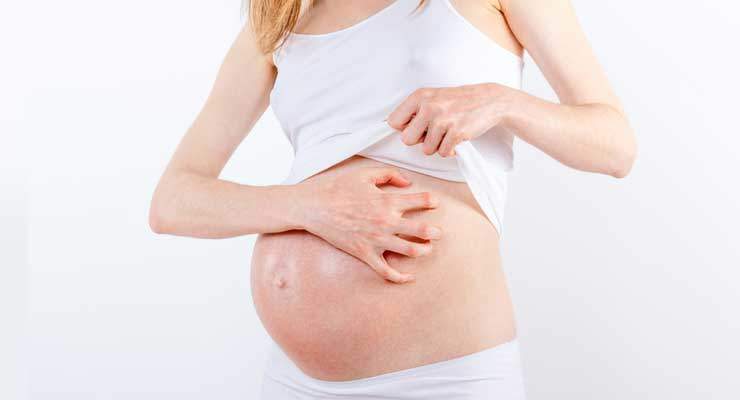Hormonal changes cause the breasts to get larger during pregnancy in preparation for making breast milk. Any enjoyment an expectant mother has in her newly enhanced cleavage may be ruined, however, if she gets a rash on her breasts. Skin changes during pregnancy are common, and the breasts are just one area that can be affected.
Causes
Rashes on the breasts and other parts of the body can be caused by hormonal changes or even overheating. Hormones affect the sweat glands, causing pregnant women to sweat more than usual, which can cause rashes to develop. Heat rashes often spread across the chest. In the case of pruritic urticarial papules and plaques of pregnancy, or PUPPP, the cause is not known.
Symptoms
Heat rashes appear as red areas of tiny bumps across the breasts. The rash may be solid in color, or splotchy. PUPPP develops during the third trimester. It appears as itchy, red areas on the belly, which can spread up to the breasts. Another rash that affects about 1 in every 300 pregnant women is prurigo gestationis, which looks like tiny bug bites. This rash appears on the hands, arms, chest and legs.
Treatment
While the rashes themselves cannot be cured, it is possible to treat the symptoms. Oral antihistamines are used to treat the itching that accompanies many of these rashes. Topical ointments can also be used to relieve itching and swelling. Cool compresses can ease the discomfort of hot, swollen areas.
Considerations
Stretch marks, which appear as red streaks, can affect the breasts, especially in women who gain a great deal of weight during a pregnancy. These marks might be mistaken for a rash, but they do not itch like many rashes do. Like stretch marks that appear on the abdomen, they will fade over time.
Warning
See a doctor if you have a rash anywhere on your body during pregnancy. While most rashes are not serious and will go away after the baby is born, there are some things that do signify a health concern. Very itchy skin, for example, can indicate intrahepatic cholestasis of pregnancy, which is a serious liver problem.





